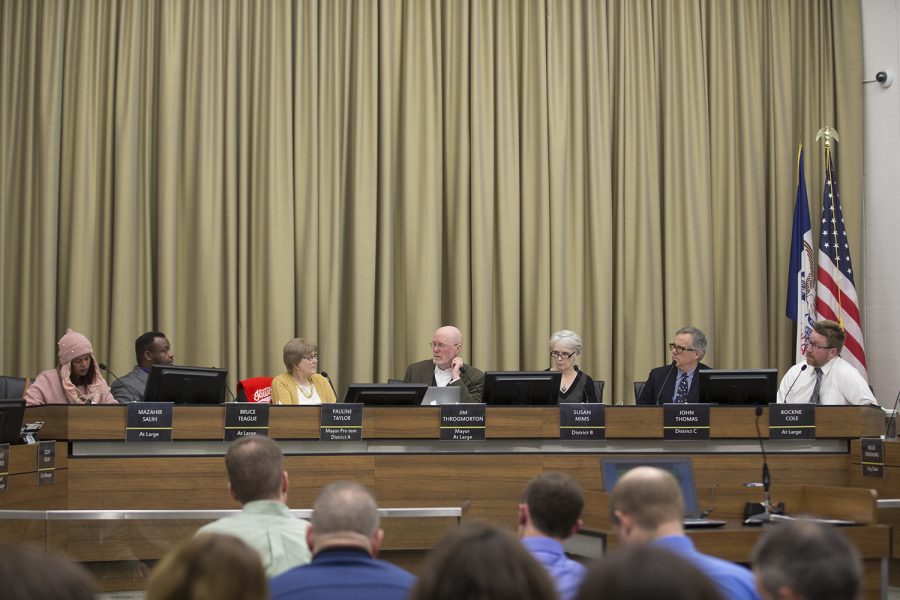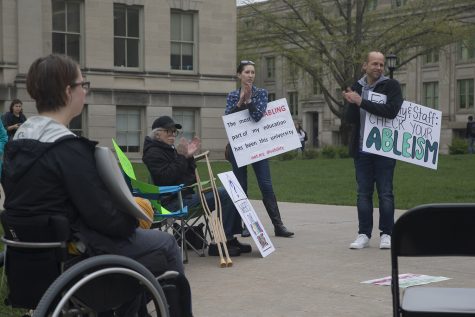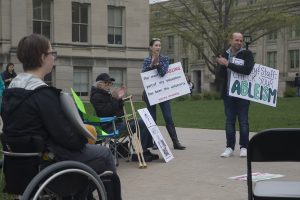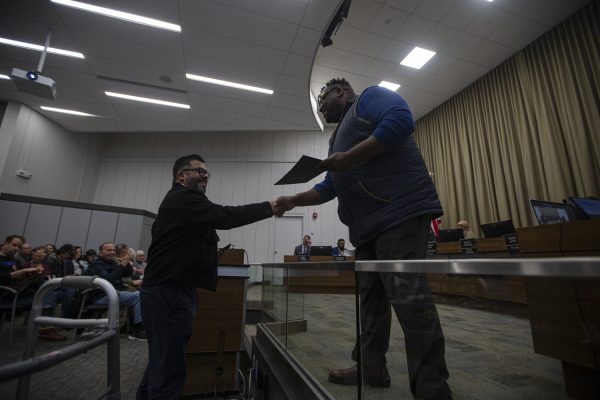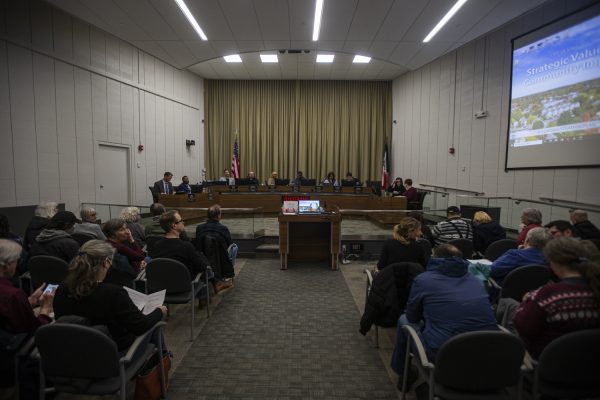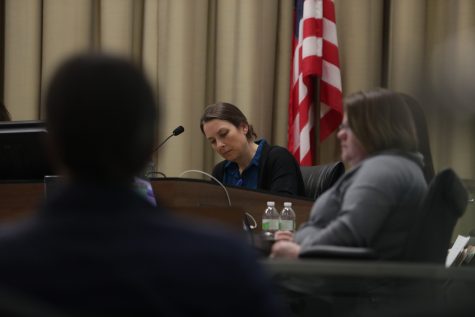City Council approves first consideration of rental-permit moratorium
With Iowa City’s rental caps soon to be prohibited by state law, the City Council is moving to enact a temporary moratorium on rental permits across the city.
City Council members address complaints regarding the new benches for the Pedestrian Mall at City Hall in Iowa City on Tuesday, January 22, 2019. Some community members feel that the new benches are hostile to the homeless.
May 1, 2019
On a 7-0 vote, the Iowa City City Council approved first consideration of a controversial moratorium on rental permits across the city until March 7, 2020.
The moratorium was proposed in reaction to a state law that both houses of the state Legislature passed over the past two months that would prevent cities from enforcing rental caps in neighborhoods.
A rental cap is a restriction on the number of rental permits that are given in a certain area.
The city has rental caps enforced in several neighborhoods in the University of Iowa area, which are in place to prevent overcrowding and congestion in the areas, the city says.
Since the passing of the new legislation, however, this measure will no longer be available to the City Council.
City Hall was packed with about 60 people to discuss the council’s decision. With a public comment period lasting nearly an hour, several real-estate agents, landlords, and homeowners presented objections to the moratorium.
Most objections to the measure centered on how it could negatively affect homeowners, property values, and renters.
Iowa City real-estate agent Lorraine Bowans told of trying to sell her house in an area with a rental cap in place. She said she could have sold the house for $400,000 as a rental property but ended up having to close at $335,000.
She said problems with student renters can be addressed with better enforcement of existing city ordinances rather than a decrease in rental permits. Also, she said, students have found ways to get around rental permits and still cause disruptions in residential neighborhoods.
“There’s always going to be ways to get around it, so the only people I think you’re hurting with this is the single-family homeowner,” she said.
RELATED: Iowa City reacts to legislation that would prohibit rental caps
Though the restrictions on rentals are meant to prevent overcrowding of student housing in neighborhoods around the UI, some argued that rental regulations hurt long-term, nonstudent renters.
Iowa City real-estate agent Adam Pretorius said the young adults are moving toward renting housing long-term rather than buying.
“We’re so quick in a university town to judge that every tenant is going to be a college student, but they’re not,” he said. “I think it’s important to recognize that and know that not everyone is going to be a student.”
While the majority of the commenters were against the measure, some argued that rental-permit regulations keep housing prices down for middle-class homeowners.
While the councilors said they sympathized with the concerns raised, they also stressed that the moratorium was a temporary measure in order to come up with a new solution to neighborhood overcrowding.
“The state has banned our use of rental caps, and what we are doing is considering a moratorium to give us time to come up with an alternative now that that tool has been taken away from us,” Mayor Jim Throgmorton said.
Councilor Bruce Teague suggested an amendment shortening the moratorium to six months, ending on Dec. 1, 2019, but the amendment was voted down in a 5-2 vote.
City Manager Geoff Fruin said deciding on new regulations would take a long time, because the most common regulations across the country — namely familial status and rental caps — have been prohibited by the state.
“I’m not sure there’s a whole lot we can learn from other communities, frankly,” Fruin siad. “We’re probably going to be inventing regulations ourselves, and that’s going to require a little more time.”
The ordinance will be considered again at the council’s next two meetings, and it will take effect if approved after the third consideration.



